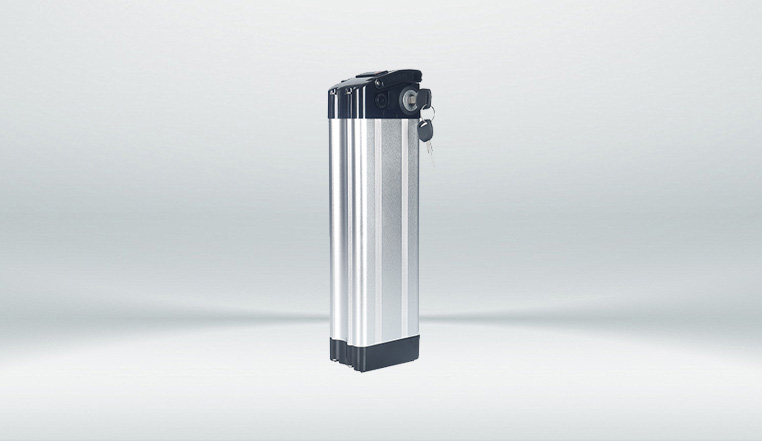
- Products
- Solutions
- Customization
- About
- Resources
- Contact
- Request A Quote
When it comes to electric bikes, the battery is the heart of the entire system. It determines how far you can ride, how fast you can go, and how long your e-bike will serve you efficiently. Choosing the right battery is therefore a critical decision for manufacturers, distributors, and fleet operators in the e-bike industry. This article explores the key factors that affect the performance and reliability of e-bike batteries and offers practical guidance for selecting the best solution for your needs.
Before choosing an e-bike battery, it’s important to understand a few basic technical terms. Battery voltage (V) determines how much power the motor can deliver; higher voltage means more power output. Capacity (Ah) shows how much energy the battery can store, which directly affects the riding range. Energy (Wh) is the product of voltage and capacity and represents the total available power.
For example, a 36V 10Ah battery has an energy capacity of 360Wh, while a 48V 15Ah pack delivers 720Wh — nearly double the power. Understanding these numbers helps e-bike manufacturers and suppliers select batteries that match specific performance requirements, whether for city commuting, cargo delivery, or mountain e-biking.
Not all lithium batteries are the same. The most common types used in e-bikes include Lithium-ion (Li-ion), Lithium Iron Phosphate (LiFePO₄), and Nickel Manganese Cobalt (NMC). Each has distinct characteristics that influence cost, weight, and lifespan.
When selecting an e-bike battery pack, manufacturers should carefully evaluate the trade-off between cost, range, and lifespan. For instance, LiFePO₄ packs may cost more initially but provide a longer service life and enhanced safety — key benefits for large-scale operators or rental services.
Apart from chemistry, several performance parameters determine battery quality. The C-rate (discharge rate) measures how quickly the battery can release its energy. A higher C-rate means the battery can handle higher loads, important for e-bikes that climb steep hills or carry heavy loads.
Cycle life is another crucial factor — it indicates how many charge/discharge cycles the battery can complete before losing significant capacity. High-quality lithium-ion e-bike batteries typically last 600–1000 cycles, depending on usage and maintenance.
Additionally, internal resistance, temperature tolerance, and charging speed also play key roles in battery performance. Consistency across cells within a battery pack ensures reliable output and reduces the risk of imbalance or overheating during operation.
A Battery Management System (BMS) is the brain of any e-bike battery pack. It monitors voltage, current, and temperature to prevent overcharging, over-discharging, and short circuits. A well-designed BMS also performs cell balancing to keep all cells within safe operating limits, extending overall battery life.
Compatibility between the battery pack, motor controller, and charger is equally important. Mismatched voltage or current ratings can lead to performance loss, reduced lifespan, or even safety hazards. Therefore, manufacturers and system integrators should ensure that all components are properly matched and tested before assembly.

Battery safety and reliability are not only performance concerns — they are also regulatory requirements in many markets. Reputable e-bike battery suppliers follow international standards such as UN38.3, IEC62133, and CE certification, ensuring the battery has passed strict tests for vibration, impact, short-circuit, and thermal stability.
Furthermore, attention should be given to the battery casing, connector quality, and thermal management design, as these physical components directly influence durability and safety during long-term use. Partnering with a reliable e-bike batteries supplier that maintains a strict quality control process can greatly reduce warranty issues and improve customer satisfaction.
Different e-bike models require different power setups. For light city bikes, compact 36V batteries with moderate capacity are often sufficient. Cargo or delivery bikes, on the other hand, benefit from 48V or even 52V systems that can deliver higher torque and longer runtime.
Manufacturers should consider real-world conditions such as terrain, weather, and payload when selecting batteries. In addition, it’s wise to evaluate the after-sales service, customization options, and technical support offered by the supplier. A good partner doesn’t just provide batteries — they provide engineering support to help you integrate them efficiently into your product line.
Even the best e-bike battery requires proper care. Avoid full discharges and store the battery in a cool, dry place when not in use. Charging with an approved charger at the correct voltage is essential to prevent damage. Regular inspections of the connector and housing also help identify early signs of wear or corrosion.
Routine maintenance not only extends battery life but also maintains consistent performance, ensuring that the e-bike operates safely and efficiently over time.
Selecting the right e-bike battery is a balance of chemistry, capacity, performance, and compatibility. Understanding key factors such as voltage, energy, BMS, and safety standards allows businesses to make informed decisions and build reliable electric mobility products. For professional manufacturers, choosing the right e-bike batteries supplier can make a significant difference in product performance and brand reputation.
RHY Battery provides high-quality lithium-ion battery packs designed specifically for electric bikes and other electric mobility applications. With advanced production technology, reliable quality control, and customization support, RHY Battery is your trusted e-bike batteries supplier for long-lasting performance and safety.